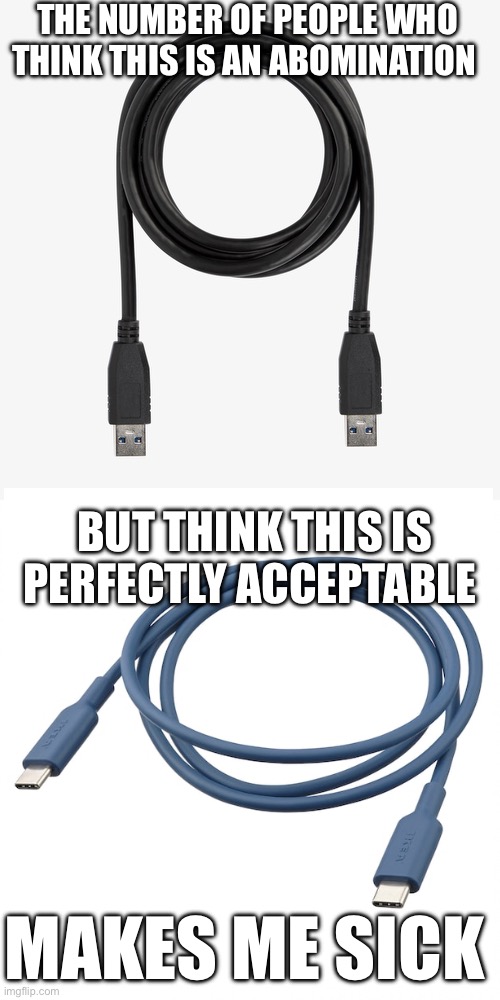Huh, I'm not sure they are comparable.
Didn't USB A and USB B use a master-slave relationship in which the male would (generally) always be the slave, whereas USB C uses agreement and discussion to decide the master and slave roles regardless of connector gender.
Please do correct me if I'm wrong. Also, do we say "agent" now instead of "slave", or what is the new term?
